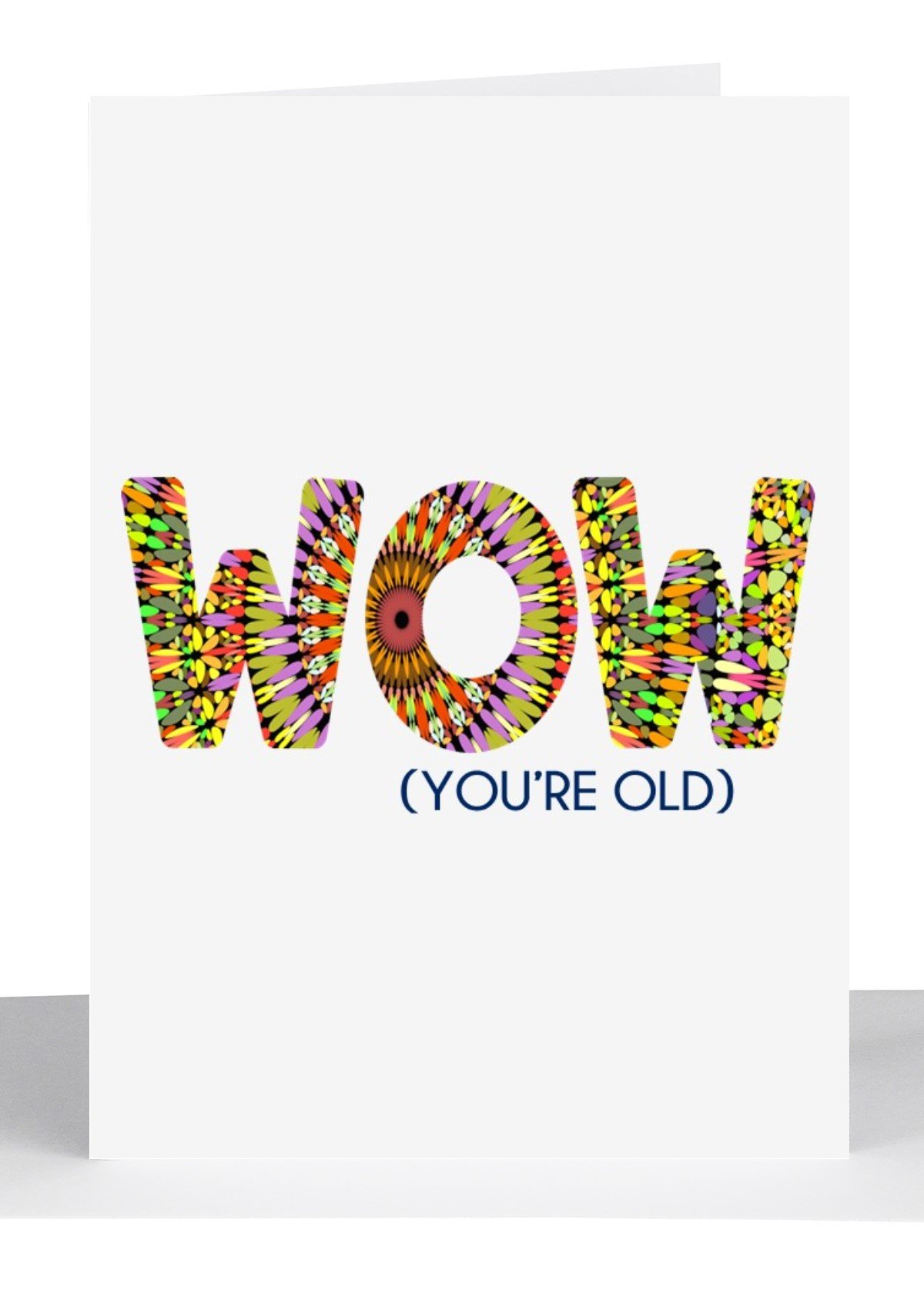Is ageist humour a good way to cope with ageing?
The Boston Globe ran an article in September with the title “Take a look at the birthday cards ageism advocates say are mean and stereotypical, 216 people commented mostly supporting these ageist cards, here’s a few examples:
“I'm an old man, and I enjoy ageism type cards It brings humor into our dreary lives.
Plus, is this another attempt to take away any pleasure we have in our lives?”
“Agreed. I'm getting older, and I'm glad that I can still laugh at myself.”
“Oh please! I’m 73 and I love these cards. These “crazy wokesters” have no sense of humor.”
“The market already has decided. That’s why there are so many of these cards, and so few “dignified” birthday cards.”
The overwhelming majority of comments (from older people) thought that laughing at the stereotypical characteristics of ageing was not just OK but good. Many commentators agreed that ageism or rather age discrimination especially in the work environment was an issue.
Is laughing at our physical and mental decline simply a way “we”, (older people), deal with our ageing?
Ageist or just intimate banter between friends?
We have spoken to several senior executives in the UK Greeting Card Industry about the ageist nature of cards which make fun of ageing. They reinforced that the majority of these cards are sent by older people themselves, and that we must assume they aren’t doing so to upset their friends.
They explained that the relationship between sender, recipient and card is highly nuanced, “it’s a ‘triangle’; you can’t take the card out of the relationship and understand what it means or the impact it will have, the meaning is held within the relationship. What may look like an ageist card mocking physical or mental changes to us, may feel cathartic between peers who have noticed and even worried about change in themselves”. The industry believes that in the vast majority of cases, the sending of these cards creates a sense of camaraderie, playfulness, reassurance and intimacy between sender and recipient.
We aren’t here to argue with them. After all, we don’t imagine that many people who send these cards intend to cause offence or harm. But that doesn’t mean that no harm is done.
What happens when these cards leave the ‘bonding banter’ triangle? What happens when they sit on a shelf in a supermarket looking out at everyone, free from the context of friendship and camaraderie? What happens when they are put on the mantelpiece facing everyone at the birthday party? They tell everyone who sees them that to grow old is to become less, is to be ridiculed and avoided if possible.
Unpicking the cultural narrative that tells us that getting old is bad, is a big job because we start believing it so early (as young as 4 years old). We learn, as small children, to believe ageist stereotypes, and behave in ageist ways. We are constantly told through advertising, culture and politics that to be young is good and to get old is not, that to age is to decline, is to ‘lose’ youth, vigour and opportunity [1] .
And we know that internalised ageism, as well as overt ageist discrimination is truly damaging to all of us all of the time. Do we really want to continue exposing our children and young people to this worldview? And by allowing it to play out in our birthday celebrations, do we collude in it, even if we don’t feel personally offended?
How do we tackle internalised ageism with older people?
Whilst we rail against ageism the truth is that many older people express and exchange ageist attitudes not only between peers but also about themselves. It seems to be an accepted gallows humour that we share the negatives of ageing, apologise for being old, and highlight and denigrate the ageing process, especially mental and physical decline – "we are in this together…. laughing at ourselves is a way of dealing with it".
And so whilst older people continue to buy and share these cards with friends and colleagues – card designers will continue to make them and sell them.
We have a challenge. How do we lay foundations for a better, more age inclusive future?
We must become the change ourselves; let’s aim to call out ageist “banter” amongst our peers, friends and family, and most of all with the conversations we have within our heads about ourselves. It’s not easy to go against the grain of culture, and challenge those we love, we can promise it won’t always go down well, but if we can invite ourselves and others to build a better future with more freedom for people of all ages that’s a brilliant gift to leave for those who are to follow. If we don’t challenge ageing negativity we older people continue to be the problem!
We’d very much welcome comments, ideas and thoughts on the campaign.
Join us in the movement to support Better Birthdays by spreading the word to everyone you know who has a birthday (i.e. everyone), and buying age-positive cards.
Please share this site, read our blog, learn the guidelines, use cards as tools for change, help create Better Birthdays! for all ages and embrace ageing!
We can all work together to be part of ending ageism.
[1] Officer, A. & de la Fuente-Núñez, V. (2018) A global campaign to combat ageism, Bulletin of the World Health Organization 2018;96:299-300. doi: http://dx.doi.org/10.2471/BLT.17.202424


